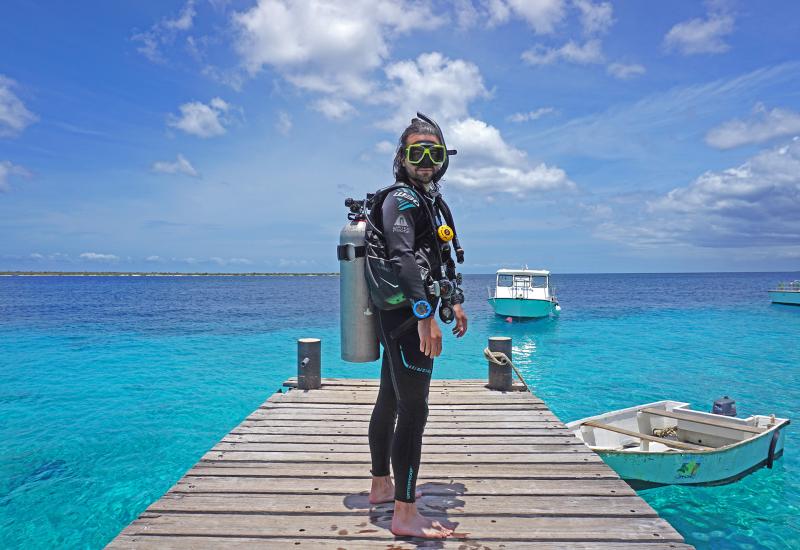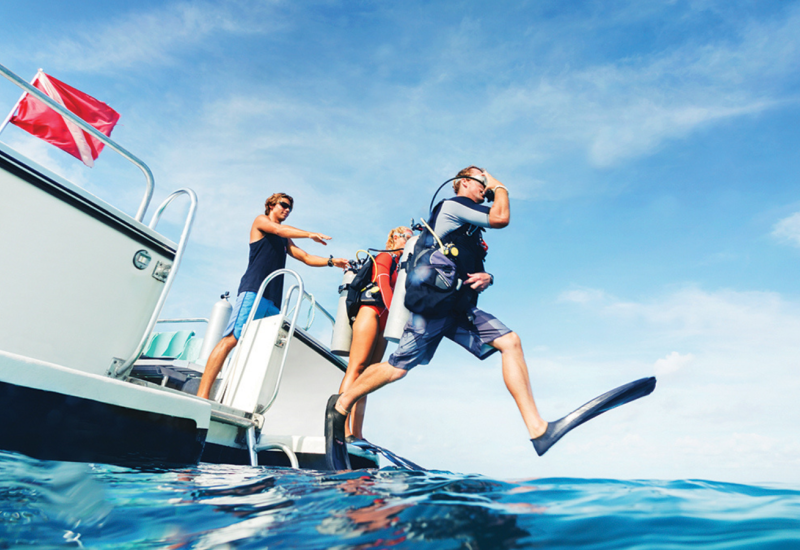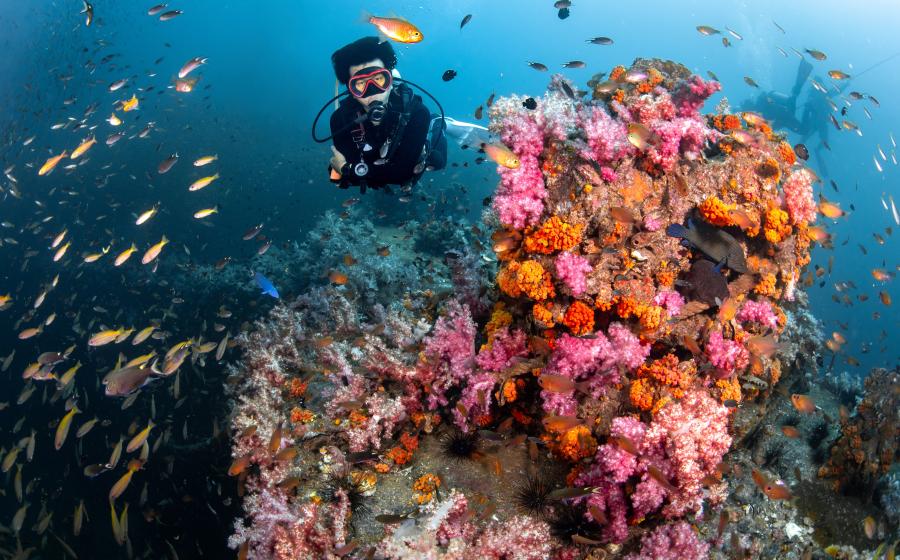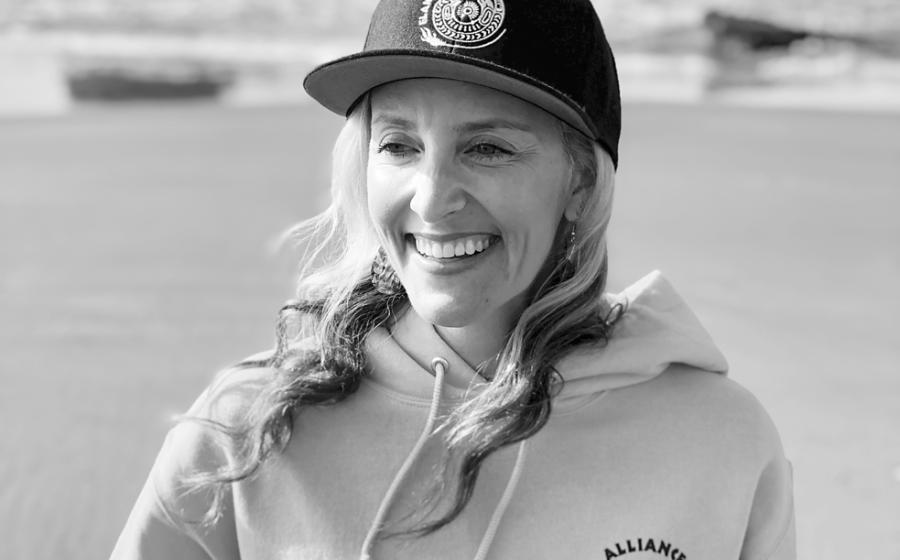5 Tips for New Divers

ShutterstockIt can be intimidating to make your first open-water dives without your instructor. Don’t be afraid to let the divemaster know that you’re a new diver.
I remember it like it was yesterday — my first open-water ocean dive. I was in the Bahamas, and intently listening to the divemaster’s briefing. He explained we’d be making our first dive at the top of a wall. We were to meet at the mooring at about 35 feet and then we’d gradually make our way to the edge of the wall, dropping down to about 90 feet.
Wait, what? Ninety feet, as in 9-zero feet?
I looked around. No one seemed concerned. In fact, people were happily gearing up, and quickly getting into position to giant-stride off the boat.
So I said nothing, even though I had never been deeper than 60 feet, which had seemed plenty deep enough. I concentrated on memorizing the color of the divemaster’s fins, resolving to stay no more than a fin’s length from him.
During the dive, I realized a few divers, including my buddy, were swimming a few feet above the divemaster, though still trailing him. I soon joined them, and my anxiety disappeared.
Back on the boat, my buddy told me he preferred to stay shallower for a couple of reasons: (1) he conserved air and (2) he often found there was just as much to see, if not more, in shallower water.
Related Reading: Your First Set of Scuba Gear: A Buyer's Guide
Now that I’ve got hundreds of dives in my log, I know my anxiety — and my silence — were due to being new. Since then, I’ve learned to ask questions and to let the divemaster know things about me, such as explaining that it takes me a while to clear my ears as I descend.
So, if you’ve just earned your C-card, we’d first like to welcome you to the dive tribe! And we offer you these five tips:
1) Get organized the night before. Check the dive operator’s website for any special instructions, such as what time to be at the boat; what extra gear you’ll need, such as a dive light or surface signaling device; and what’s not permitted on board (some dive operators don’t permit bananas, for example, as superstitious seamen believe they bring bad luck). Read our Dive Boat Survival and Etiquette Guide. Create a checklist of everything you want for the next day’s dive, from your scuba gear to other essentials like a towel and sunscreen. Invest in a dry bag to keep your towel, change of clothes, car keys, money for the crew’s tip, etc. protected from wet gear and ocean spray. Set up a staging station in your living room and pack everything on your checklist. Don’t forget your C-card!
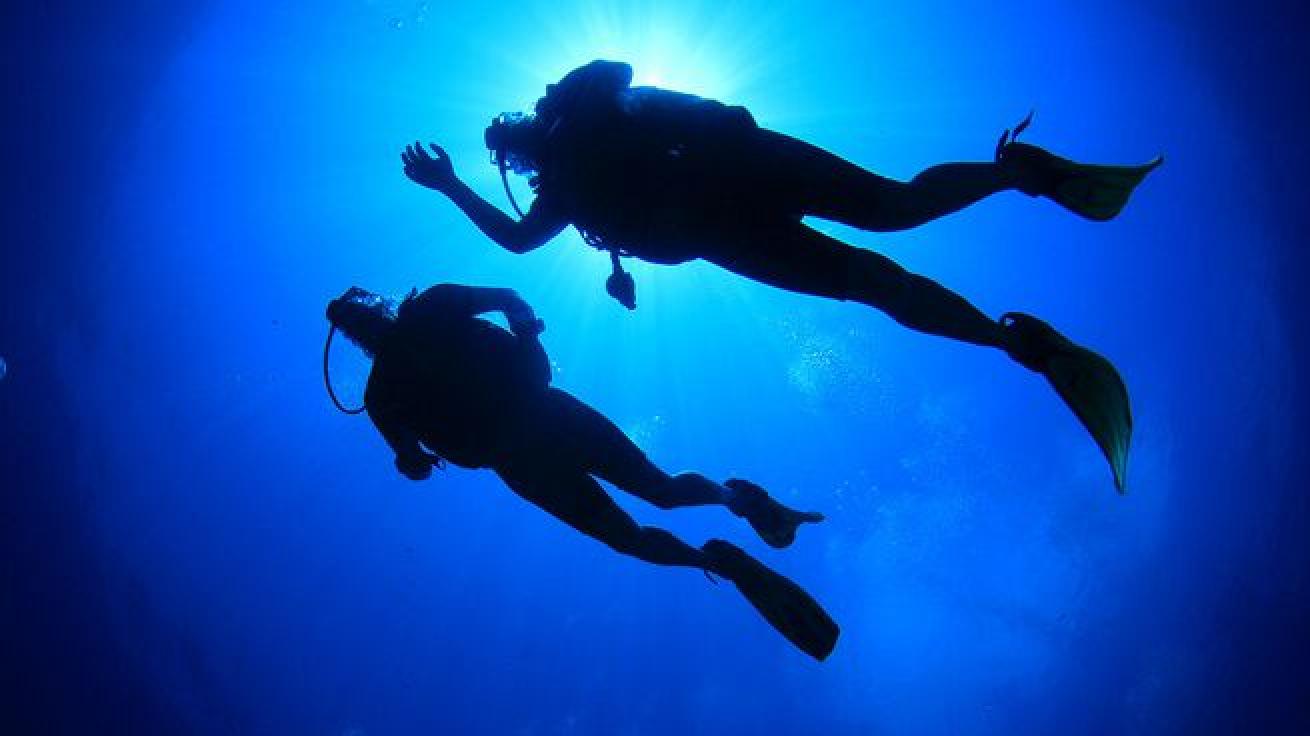
ShutterstockDiving solo? Consider paying for a dive guide — he or she can give you individual attention and help you develop confidence underwater.
2) Don’t be afraid to ask — anything. Listen carefully to both the boat and dive briefing. You don’t want to be the person who rinses her mask into the camera rinse bucket or who enters an area of the boat that’s off-limits. The crew should cover all the basics, but if they miss covering any detail — from something as basic as where to stow stuff you want to keep dry or something more crucial such as whether you’ll be diving as a group — ask. Chances are someone else on the boat wants to know, too.
3) Get to the boat early. This way, you have plenty of time to set up your gear and get your station organized. Stow stuff you don’t need under the bench or where the crew directs you.
4) Hire a dive guide. If you’re diving solo and you’re nervous, pay a bit more to have a dive guide be your buddy. It’s not that a divemaster won’t be attentive; it’s that he or she has several divers to monitor. A dive guide can give you one-on-one attention, help you relax, and give you tips on improving your skills. And along the way, you’ll be developing confidence.
Related Reading: How To Pick a Scuba Diving Instructor
5) Don’t forget to use your hand signals. It’s easy to remember the OK signal. But when your buddy, divemaster or guide “asks” you if you’re OK, and you’re not, signal to them what the issue is — for example, if you’re struggling to clear one of your ears, waggle your hand and then point to your ear. A good buddy will pause, ascend a few feet and allow you the time to sort out your issue. There are a ton of signals that experienced divers use to “talk” underwater, conveying everything from “I’m cold” to more serious issues such as “I’m low on air.” You can review them in our Scuba Hand Signals video.
Finally, don’t forget to have fun! Before you know it, you’ll be the experienced diver giving tips to someone who is just starting on the adventure of a lifetime.



